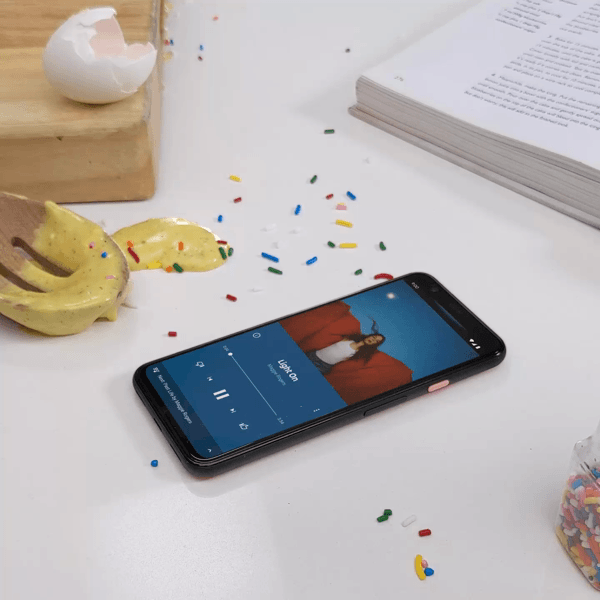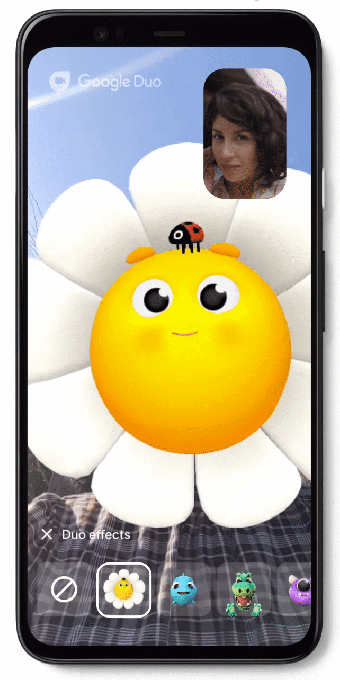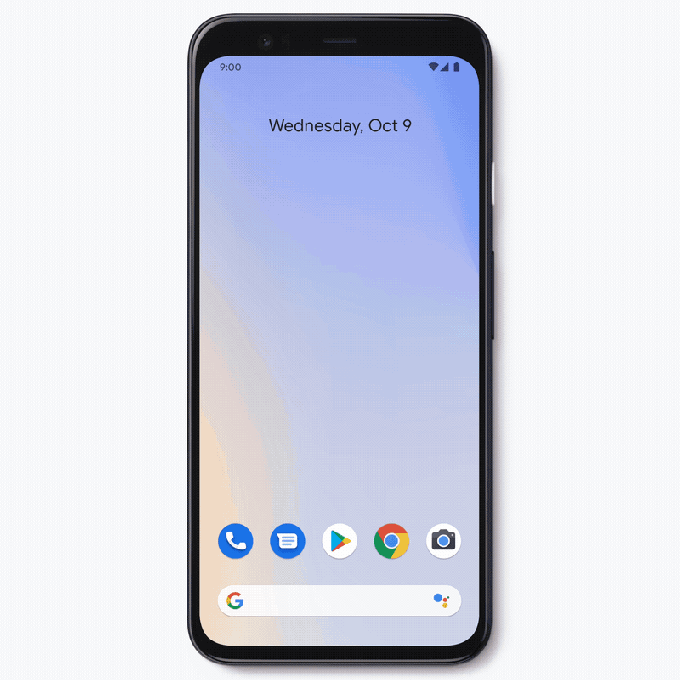Pixel phones updated with new gesture controls, emoji, AR effects & more
One of the benefits of owning a Pixel smartphone is that it improves over time, as Pixels are first to receive updates that deliver the latest fixes and improvements. The first round of new features arrived in December, including a filter for robocalls, more photo controls, improved Duo calls and more. Today Google says Pixel owners are getting a second set of additions, this time including new music controls, new emoji, still more photo and video features, expanded emergency help features, Google Pay improvements and several others.
Last year, Google introduced a new sort of gesture control, called Motion Sense, with the introduction of the Pixel 4. The idea is that you can now control your phone without having to touch it. Instead, the smartphone detects the wave of your hands and translates that into software controls.

Already, Motion Sense allowed Pixel 4 owners to skip forward or go back to a previous song. With today’s update, they’ll also be able to pause and resume music by making a tapping gesture above the phone.
Google suggests this will be an easy way to pause your music when you need to have a conversation. But in reality, it will only be useful if it works consistently — and so far, reviews have said the Motion Sense system was finicky and underdeveloped. That could change in time, of course.
Another improvement today is an update to Pixel 4’s Personal Safety app, which first arrived in October. The app uses the phone’s sensors to detect if you’ve been in a severe car crash and checks with you to see if you need help. It also lets U.S. users call 911 with a tap or voice command. If you’re unresponsive, the phone shares your location and details with emergency responders. Now the feature is coming to users in Australia (000) and the U.K. (999).
The new set of updates also includes added AR effects for Google’s video calling app Duo, which can change with your expression and move around the screen. These aren’t Duo’s first set of effects, but keeping the roster of effects updated is critical for social communication apps.

Meanwhile, the Pixel 4’s selfie camera can now create images with depth, which improves Portrait Blur and color pop, and lets you create 3D photos for Facebook.
Pixel phones will also now receive the emoji version 12.1 update, which hit iPhone with the iOS 3.2 update in October 2019, and which arrived on Twitter in January 2020. The set includes 169 new and more inclusive emoji, offering a wider array of gender and skin tones as well as more couple combinations.
A change to Google Pay will now let you press and hold the power button to swipe through your debit and credit cards, event tickets, boarding passes and other stored items. This is coming first to the U.S., U.K., Canada, Australia, France, Germany, Spain, Italy, Ireland, Taiwan and Singapore.
 You can also now take a screenshot of a boarding pass’s barcode, then tap a notification to add it to Google Pay to then receive real-time flight updates as notifications. This is rolling out to all countries with Google Play on Pixel 3, 3a and 4 during March.
You can also now take a screenshot of a boarding pass’s barcode, then tap a notification to add it to Google Pay to then receive real-time flight updates as notifications. This is rolling out to all countries with Google Play on Pixel 3, 3a and 4 during March.
For power users, another useful addition lets you now configure rules based on Wi-Fi or physical location. For example, you can set your phone to automatically silence your ringtone when you arrive at work, or go to Do Not Disturb mode when you get home, among other things.
Other new features include the rollout of Live Caption (automatic captions) to Pixel 2 phones, the ability to schedule when Pixel’s Dark Theme turns off and on, an easier means of accessing emergency contacts and medical info, improved long-press options for getting faster help from your apps and an update to Adaptive brightness to make reading in direct sunlight easier.
Google says the new feature set is rolling out starting today. You may not see it immediately, but should fairly soon.
Powered by WPeMatico